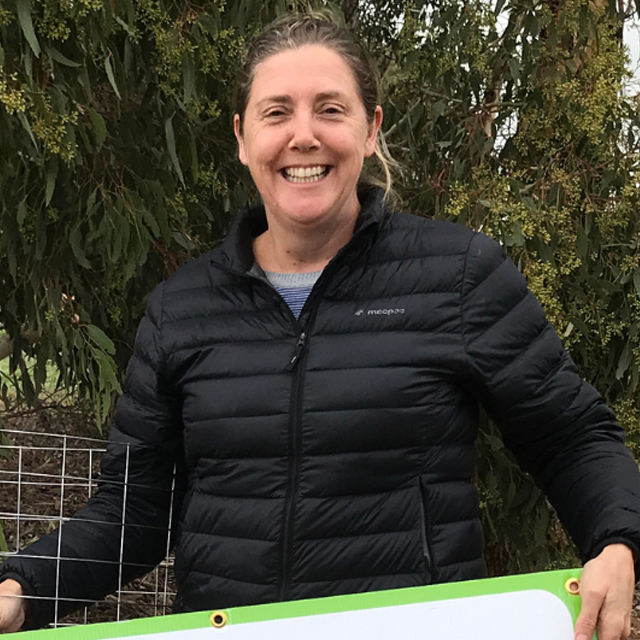Tell us in a few sentences about your experience as a viticulturist, how did you arrive here?
I’m actually a qualified winemaker with a passion for the vineyard! Bremerton is a family business and was established in 1988, I have been making wine for Bremerton since 1997 proudly from Langhorne Creek fruit from our own and grower vineyards. My sister Lucy and I now own and run the business which incorporates our viticultural arm – First Pick Viticulture.
Why did you decide to apply to be an EcoGrower, was there something specific that influenced your decision and/or had you attended a previous EcoVineyards session?
My motivation to apply was the desire for education around the biodiversity opportunities for our sites and to be able to surround myself with like minded people who I could learn from and start to put into practice those learnings and see a real impact on the diversity and health of our land.
Has there been a defining moment or catalyst for you to move towards more ecologically driven viticultural practices?
Not a real defining moment just an urge!
Can you provide a brief overview of your project ideas, and what you wish to achieve over the 3 years and why is this important to you?
We are looking at establishing a ground cover (native grasses and forbes mix TBC) on a green field (old, removed vineyard) site. The site has historical invasive weed problems, and we want to correct the balance before introducing the infrastructure and replanting vines.
We will measure soil health and predict increased activity and expect future reduced input and vineyard floor management costs by getting the prep and establishment right first. We will also be looking at composting our winery marc waste and utilising this for further improved soil health.
Are you just starting to learn, or have you been enhancing biodiversity on your property and is this an extension of what you are currently doing? If so, please tell us more.
We have already been involved in the EcoVineyards program and have been planting natives for improved biodiversity across 2 vineyard sites. These have been very successful in establishment and now we are excited to get under the surface and look at the soil health and activity.
Tell us about your hidden superpowers, something that others don’t know about you or a practice you would like to champion?
Currently I think my superpower is persistence.
Where do you see grape growing in the future, do you feel there is an urgency to change current practices? If so, why?
I do feel a sense of urgency when it comes to vineyard floor management, the phasing out of traditionally used chemicals for weed control spurs us forward with exploring alternative approaches.
In addition, anything that can improve soil health (and understanding of what happening in our soil) for long term sustainability is high on our radar.
What else would you like to share with the broader EcoVineyards community, what gets you excited about the future?
I get excited when I see a gathering of industry people opening their minds to alternative practices (like at the EcoVineyards field days and events).
It makes me feel good for the future of our industry. I also love the open sharing nature if our industry this raises us all up.

